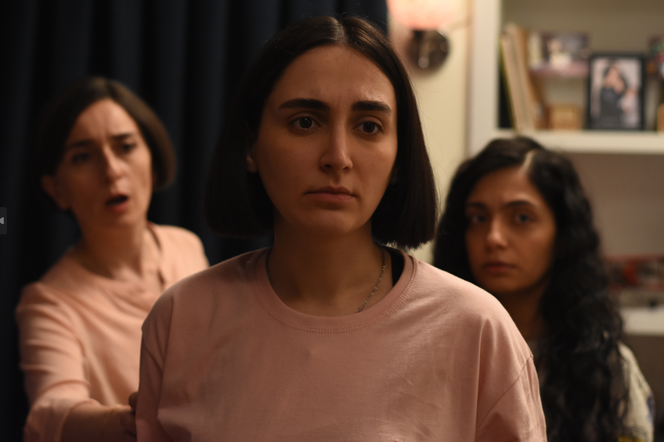


In her work, Samira, a film editor living in Iran, who prefers to use a pseudonym to protect herself from reprisals, has always complied with the laws and codes in force in the Islamic Republic of Iran. In accordance with Iranian law, in the films the 40-something Iranian has edited, there have never been actresses without veils, no physical contact between men and women, nor any dialogue involving criticism of Islam or the country's political system.
Since the Woman, Life, Freedom uprising, which swept across Iran after the death of Mahsa (Jina) Amini in September 2022 while in police custody owing to her appearance being deemed not Islamic enough, Samira has decided to no longer submit to censorship. For over a year now, she has only collaborated on films made without authorization from the Ministry of Culture and Islamic Guidance. The same goes for many of her friends and colleagues in what has become an unprecedented phenomenon in Iranian cinema.
"Until September 2022, my colleagues and I recognized that censorship was of course detestable, but we felt obliged to work with it," said Samira, contacted in Tehran over WhatsApp. "Following Mahsa's death, I realized that accepting censorship was a form of collaboration. Since 2022, I have finally become lucid. We are faced with a regime that kidnaps and kills 15-year-olds. It shoots and disembowels young people. It was no longer possible to work within the framework desired by this regime."
A few weeks ago, with 15 colleagues, Samira finished shooting a feature-length film on the current political situation in Iran, about a society that has just gone through the most powerful uprising of the last 45 years. It portrays women who dare, despite the risk of arrest and violence, to go out with their heads uncovered and young people angry at a regime that responds only with repression. "In the film, there are women without veils and a dance sequence [banned in Iran]. The subject is clearly political, because in Iran today, everything is political," said Samira.
For the street scenes in Samira's film, the unveiled actresses had a scarf or hat on hand. "Just in case," said Samira. Hundreds of meters from the film location, however, morality police patrols were conducting heavy-handed arrests of women deemed poorly veiled. "My heartbeat didn't even speed up," said Samira. "I can't say I've become any bolder, but, for me, it's important to stop complying with this regime and its rules."
According to the Iranian press, 71 films made and produced without authorization from the Iranian regime were sent to the Cannes Film Festival, including Seeds of the Wild Fig Tree, by dissident director Mohammad Rasoulof, in the running for the Palme d'Or on Friday, May 24. Sentenced to five years in prison for his work and political involvement, the filmmaker left his country clandestinely for Germany. His collaborators were summoned by the intelligence services in Iran and subjected to psychological pressure in a bid to convince Rasoulof to withdraw his film from the Cannes Film Festival.
You have 49.16% of this article left to read. The rest is for subscribers only.
